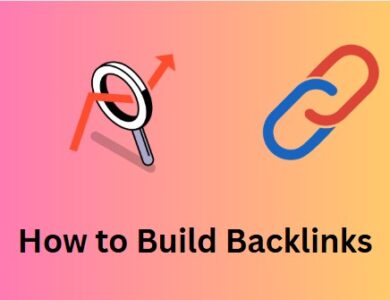
SEO gurus will always tell you to write quality content if you want to rank on Google’s first page. It’s an understandable requirement, given that most people make Google searches to find useful and valuable information.
But what quality content actually is?
It’s a piece of content that’s valuable, useful, and contains all the information that a user needs about the topic. This beginner’s guide is going to help you understand more about high-quality content and how it affects Google rankings. Let’s start.
What Is Quality Content?
Quality content is a piece of content that’s useful, accurate, relevant, and reliable for a target audience. It shares all the useful information readers need with a touch of firsthand experience.
The term quality content is very generic, and every industry, website, and publisher has its own standards for it.

However, there are some common characteristics of quality content that almost everyone agrees upon. According to these characteristics, a quality piece of content is one that is:
- Useful and offers something valuable to readers.
- Well-structured and explains concepts in simple and clear wording.
- Relevant to a specific audience.
- Written concepts are according to the intended searches of users.
- Engaging and persuasive in its presentation.
- Authoritative and demonstrates credibility.
Quality Content in the Eye Of Google:
Google measures the quality of content in the same way, but with a few more technicalities. It uses different NLP systems, such as BERT, to see how useful and relevant the content is for its audience.
For Google, quality content is:
- Useful and valuable.
- Well-structured with clear hierarchy in headers and metadata.
- Optimized for user intent, which is usually informational, transactional, or navigational.
- Accurate and contains credible sources.
- Updated regularly to add fresh information and data.
Why Does Quality Content Matter in SEO?
Quality content is one of the most basic drivers of higher rankings on Google in the world of SEO. When a website offers well-written and valuable content, it signals to Google that the site is very useful for people. As a result, it ranks the site higher in its relevant search queries and keywords which is searching in Serp for getting the information.
Ranking on relevant keywords:
A well-optimized content contains relevant keywords that are highly searched on Google. These keywords allow Google to identify the basic purpose and intent behind the written work. As a result, it ranks websites accordingly.
For example, a local business selling t-shirts in Miami will add keywords that most people are searching for in Miami. Some examples are “best t-shirts in Miami” and “where to buy t-shirts in Miami”. Google will read these terms and show the business to anyone looking for t-shirts in the region.
Low Bounce Rate:
High-quality content also helps with lowering bounce rate. When people find valuable data explained in an engaging way, they stick to it and finish reading. This increased user engagement lowers the bounce rate, sending a positive signal to search engines and boosting your SEO rankings.
Brand Authority:
Another important point that explains the importance of good content in SEO is brand authority. Credible content makes other people link to your website, which improves its link-building. These backlinks serve as recommendations that enhance your website’s authority and credibility in the eyes of search engines. you can check these backinks with the using of diffrent SEO Tools, like Semrush, Moz, Ubbarsuggest and Ahref Backlinks Checker. As a result, improved brand authority positively influences your SEO rankings.
Better Conversions:
One of the primary goals of many business websites is to increase the conversion rate. A decent piece of content helps with it as well. Quality SEO-optimized content not only attracts targeted traffic but also guides visitors through the buyer’s journey by answering their questions and building trust. These conversions directly improve your brand’s overall revenue.
The E-E-A-T Concept Of Google:
Google itself has offered clear guidelines about what it considers the gold standard in content. It is known as the E-E-A-T (Experience, Expertise, Authoritativeness, Trustworthiness) concept in SEO, and is extremely important to understand if you want to create high-quality content. I’ve broken down each of its components below:
Experience:
The experience concept explains that the content should be created by someone who has firsthand experience of the topic being discussed.
Example: A travel blog post should be written by someone who’s actually visited the places being discussed.
Expertise:
This factor explains the expertise (knowledge and skills) of the content creator. Content should demonstrate relevant expertise to clearly convey a deep understanding of the topic.
Example: An article on diabetes that is written by a certified endocrinologist would have strong expertise.
Authoritativeness:
Authoritativeness is about the overall reputation of the website within the relevant community/niche. It is determined by citations or references by other authority websites.
Example: A business blog being mentioned by “Business Insider” will showcase high authority.
Trustworthiness:
Trustworthiness is mainly about how reliable and honest a piece of content or webpage in general is. Different factors contribute to trustworthiness, including author bios and customer reviews.
Example: A product page with verified buyer reviews and a visible return policy shows trustworthiness.
How to Write SEO-Optimized Quality Content?
Writing SEO-optimized, quality content requires following some simple steps. I’ve discussed their details below:
Step #1. Conduct keyword research:
You should start your content writing process with thorough keyword research. Keyword research is finding terms most frequently searched for by individuals. SEO content includes many different sorts of keywords, including:
- Primary keywords
- Secondary keywords
- Long-tail keywords
Writing about these keywords and adding them within the content naturally will increase the chances of getting ranked. SEO experts use different tools, such as Moz, Ahrefs and SEMrush, in order to conduct this research, and each of them has their own methods.
Just keep in mind to target keywords with low competition and high search volumes in order to get the best results.
Step #2. Understand the Search Intent:
The next thing to focus on is understanding the search intent behind the chosen keywords.
For example, the keyword “buy laptops” will require writing a transactional piece of content. Similarly, long keywords like “how to start a blog?” will have an informational intent.
Understand the intent behind your keywords, and write the content accordingly in order to get the best results.
Step #3. Create a well-structured outline:
Creating a well-structured outline will help in writing content with a flow. It will make sure that all the main concepts are included properly. Besides that, it will help in keeping the headers hierarchy accurate in order to improve the content’s crawlability.
Step #4. Write content:
Now, begin writing content.
Be the reader while you write. It will help in explaining concepts in the way your reader would prefer. Also, make sure to keep the wording as simple as possible. Avoid repetitions and the use of complex wording, since it might make the content look like AI-written.
Be genuine and engage people with the technique of storytelling. Another thing to focus on is providing real-life examples in order to explain concepts in a better way.
Step #5. Optimize on-page SEO:
Once the content has been written, focus on optimizing on-page SEO elements. They include:
- Title tag
- Meta description
- URL structure
- Internal linking
- External linking
Optimizing these elements according to the latest search engine guidelines will make the content SEO-friendly and improve its ranking chances. If you are running a website on WordPress, you can use different SEO plugins. Both Yoast SEO and Rank Math are reliable and widely used options.
Step #6. Proofread and publish:
In order to make sure that the content is of high quality, proofreading is extremely important. reread the whole content once or twice in order to find inaccuracies. Eliminate all grammatical errors and see if you’ve missed any important topics or not.
I usually prefer making someone else read my work since it gives me a different perspective of judging.
Once proofreading is done, publish the content and keep on monitoring its performance.
Conclusion:
Well, there you have it. Writing quality content is a necessity in order to rank a website on Google. A quality piece of content is one that explains concepts easily and offers value to the readers. To optimize it for Google, experts also focus on other factors, such as keyword adjustments and content structure.
While writing the content, make sure to add the right type of keywords and keep it structured and optimized. Also, focus on other factors such as internal and external linking. Proofread the written content and then publish it if everything is accurate.
FAQs:
How to create quality SEO content?
To create quality SEO content, follow Google’s E-E-A-T concept. Keep the content simple and offer valuable information to hook and engage readers.
How does Google define quality content?
Google defines quality content as original, valuable, accurate, and trustworthy piece of content. It’s something that is well-structured, well-linked, and provides value to readers.
Can too much content hurt SEO?
No. Too much content doesn’t hurt SEO as long as it isn’t being published to manipulate search engines. As long as the content is valuable, it won’t hurt your SEO at all.
Is AI content considered high-quality?
No. Raw AI content isn’t considered high-quality. That is because it is extremely generic, repetitive, and uses difficult wording that might be tough for readers to comprehend.
What does E-E-A-T mean?
E-E-A-T means Experience, Expertise, Authoritativeness, Trustworthiness. It helps Google in assessing website reliability and credibility.



